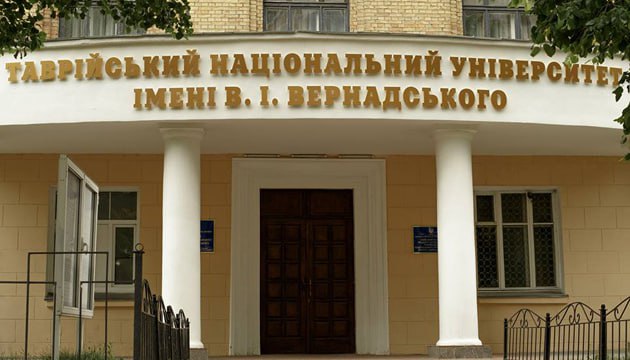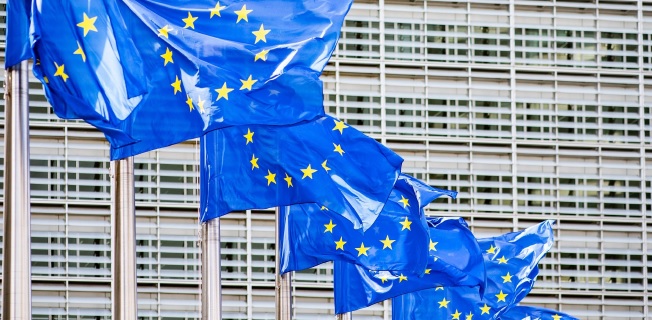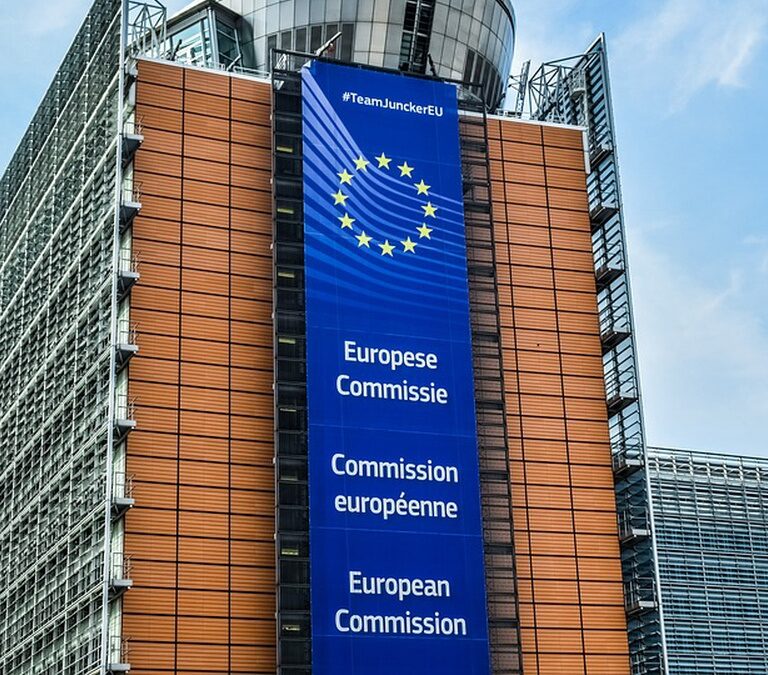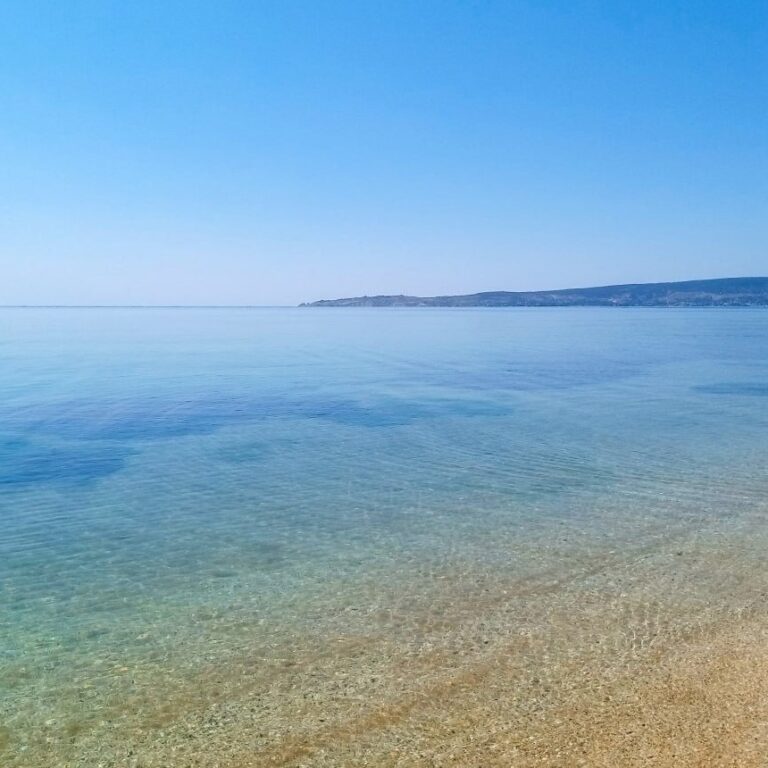On May 25, the Media Forum “How to Talk about War?” was held in Kyiv, organized by the Platform for the Liberation of Political Prisoners, moderated by Valentina Samar, editor-in-chief of the Crimean Center for Investigative Journalism. During the forum, speakers and participants discussed many important issues concerning the consequences of the Russian Federation’s military aggression against Ukraine: the Kremlin’s harmful propaganda methods, the importance of covering Russian war crimes in the world press, the systemic criminal Russian repression against Ukrainian civilians, military hostages in the occupied Ukrainian territories, including in Crimea.
During the first part of the forum, Alexander Kraev, expert at the Ukrainian Prism Foreign Policy Council and director of the North America Program, spoke about Russian propaganda and manipulation against the backdrop of the upcoming U.S. presidential election. Dmytro Zolotukhin, former deputy minister of information policy of Ukraine, founder of Post-Information Society Institute and OSINT Academy, participant of Infowars project discussed the issues of more effective methods of describing the crimes and policies of the Kremlin. Alexey Pivtorak, disinformation analyst of Public Association “Media Detector”, told about the key narratives of Russian propaganda, as well as the goals of their use and approaches to their debunking.
In the second part of the forum our correspondent asked questions to Olga Skrypnyk, the head of the Crimean Human Rights Group, during her speech “Crimean civil prisoners before and after February 24”.
ARC correspondent: How can the issues of assistance to political prisoners, hostages and prisoners of war be reflected in the Strategy of deoccupation and reintegration of Crimea?
Olga Skrypnyk: As for the Strategy for De-Occupation and Reintegration, it was adopted by the President even before the full-scale invasion and, in fact, there is a paragraph on ensuring rights and freedoms. In practice, first of all, today Ukraine has a law on guarantees for persons deprived of freedom as a result of Russian aggression. This law came into full force just in the fall of 2022. As of today, what definitely works for all of our citizens in practice is financial state aid. Those freed from captivity have the right to receive a lump sum aid of 100 thousand hryvnias. And just the exchanges that officially take place, everything is established in them: the released further apply to the Ministry of Reintegration. And here I thank the Office, including the Ombudsman. They work very quickly. The Ministry quickly processes requests so that people get the help they need. People who are still in captivity today, they are entitled to receive 100 thousand hryvnias every year. Often this money goes, for example, to ensure that at least some lawyer in the occupied territories agrees to help the hostages…But we don’t always manage to hand over at least a handover.
Money is also given to support the family of a hostage. We must understand that people are often left without any means of subsistence. My colleagues have spoken about this, which is why Ukraine provides such assistance today. Unfortunately, not all options of this law work yet. Such as rehabilitation, psychological support for civilians, and so on. This is what it is, but if we are talking in the context of reintegration, it is important to understand this issue completely. For example, conditionally tomorrow the Armed Forces of Ukraine will liberate Crimea – and they will definitely liberate it – we go into Crimea and yes, there are pre-trail centers there. There are even two pre-trial detention facilities now. There are colonies where people are sitting, some of them are definitely for political reasons, and we can confirm that. Some of them are not. What about the decisions of occupation courts, which were issued during the occupation? What about those people who have not yet been found? That is, all this must be answered now.
Ukraine is working out solutions ahead of time and among the latest steps Ukraine has taken, just this week: the Ukrainian government has approved such an experimental step – this is the creation of a personnel reserve for the reconstruction of Crimea, that is, it is training people, just more from the civilian sphere, in the public sector. They will come in after the Ukrainian Armed Forces, after law enforcement agencies in the de-occupied territories. And actually, I think this is one of the key issues, because who will work with those people from the occupied territories? We joined this process with Ms Iryna Vereshchuk, she is dealing with reintegration issues. And in fact, I think it was also a good example, when there was an invitation of quite a large number of representatives of different spheres not only of the state sector, but also of civil human rights and the Mejlis of the Crimean Tatar people. They took part in this. In fact, this is all an example of reintegration work.
ARC correspondent: What information have human rights defenders from the Crimean Human Rights Group about violations of the rights of Ukrainian prisoners of war held by the occupants in Crimea?
Olga Skrypnyk: It is difficult to say the exact number of prisoners of war. I think none of my colleagues will say, because prisoners are constantly moved by Russia. A lot of POWs, for example, were held in Sevastopol, just as Tatiana Katrichenko showed their report. I really advise you to watch it. There is really a lot of important information. There were at least two or three places in Sevastopol where prisoners of war were held. There’s a hospital there where they sometimes “help”, because, as I said, they are transported, for example, from Kherson or Zaporozhye to Crimea after terrible torture. Military men are tortured horribly, horribly…For a long time…. And then, when they are brought to Crimea, they are sometimes in such a state that they simply do not survive. We already have several concrete cases when prisoners of war died. They just died when, for example, they were transported from Kherson. Some of them were military from the Armed Forces. Some of them were representatives of territorial defence. They died exactly as a result of torture, they were not treated for two, three months while they were held in Kherson, then they were transferred to Sevastopol. Indeed, they were transferred to a hospital, but it was too late. People were dying in terrible agony. And then another terrible stage begins for relatives – the return of the body. This is a separate pain that is scary to talk about, and even I find it difficult to hold back tears, because I worked and work with these relatives who returned these bodies from Crimea, without documents of the dead. The names were simply written on the bodies with a marker.
Relatives receive such bodies. It’s impossible to identify them… Because the traces of this torture and the time until the body is taken away… It is impossible to convey the pain and hell relatives go through… Women, who are often left with children in their arms without any means of survival, go this long way to get at least their husband’s body to bury it here. This is why we do not know the real numbers of prisoners of war. They are brought to Sevastopol and very often they are sent to the Russian Federation afterwards. Some of them are included in the exchange of prisoners of war. I can confirm that some of them that were included in the exchange passed through Crimea… That’s hundreds of people. But we cannot say right now how many prisoners of war there are in Sevastopol, for example.
Firstly, these are restricted facilities, no one will just go there, and secondly, constant displacement prevents us from having an accurate figure. There is a problem that, for example, Ukraine submits its lists for exchange, while Russia, a completely uncivilised state, can simply submit any list back to us at its “discretion”: to confirm or not to confirm people for exchange at all. Sometimes we can even get people who were considered missing or dead. It turns out that they were in captivity. That is why it is very difficult to communicate with russia.
During the second part of the forum Igor Kozlovsky, Ukrainian scientist, theologian, PhD in history, writer, public figure, co-founder and member of the Platform for the Liberation of Political Prisoners, who had a sad experience of being held captive in Russia, also spoke. He urged the international media to highlight the problem with communication with the aggressor regarding the exchange of Ukrainian hostages. He also spoke about the systemic repressions that Russia was staging against Ukrainians, based on Russia’s criminal ideology. He said that Russia “denies the existence of Ukraine, the Ukrainian people and the Ukrainian identity”. He also pointed out: “In order for this mythologem to become a reality, they are destroying Ukraine, the Ukrainian people, the Ukrainian identity. This is the basis of the fact that these repressions became not episodes, but the work of the state machine”.
Serhiy Movchan, head of the war crimes documentation department of the Ukrainian Helsinki Human Rights Union, also spoke about places where Russia criminally holds Ukrainian prisoners today. Speaking about cities where Ukrainian civilian hostages are illegally held in parts of Russian-occupied southern Ukraine, he unfortunately also mentioned the Crimean Peninsula, which was occupied in 2014. Tetyana Katrichenko, Hostage Coordinator for parts of Donetsk and Luhansk regions and a member of the Media Initiative for Human Rights, spoke about the repression and abduction of civilians by Russians in eastern Ukraine. She noted that these crimes had started long before Russia’s full-scale invasion of Ukraine.
During the third part of the forum, Iryna Herashchenko, former first deputy speaker of the Verkhovna Rada of Ukraine, also spoke about the lack of civility in the ranks of Russian fighters and noted the importance of international sanctions against russia.
Mykhailo Honchar, a Ukrainian expert on international energy and security issues, president of the Strategy XXI Center for Globalistics and editor in chief of the Black Sea Security magazine, spoke not only about the beginning of Russia’s military aggression against Ukraine in 2014, but also confirmed that since putin’s first years in power Russia has criminally used energy as a weapon against both Europe and Ukraine, Moldova, Georgia, Belarus as well as other post-Soviet countries.
Oleksandr Kononenko, a representative of the Ukrainian parliamentary commissioner for human rights in the security and defence sector, concluded the forum by stressing that facts of illegal abduction of Ukrainian citizens by Russia is one of the most blatant violations of international law by Russia. He noted that “civilians are the least protected category of Ukrainian citizens during war”, so Ukraine continues to fight not only for every Ukrainian political prisoner or prisoner of war, but also for ordinary Ukrainian citizens. All Russian hostages will return home. The Kremlin will be punished for all its crimes against Ukrainians.







